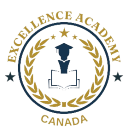16 others bought this course in the last 24 hours!
From safeguarding vulnerable individuals to promoting diversity, the care industry is a combination of a wide range of roles and responsibilities. Thus, only the skilled professionals who can manage the duties are hired in this industry. This is where the care certification comes in. It shows that you have the right skills for the job. The Care Certificate Preparation Standards course will help you secure this valuable certification.
In this course, you will receive 15 detailed lessons designed to help you to acquire the care certification. Through the modules, you will learn the duties of care. The course will teach you how to work in a person-centred way. Furthermore, you will learn about maintaining prophecy and dignity in care. You will also be able to develop the skills required for safeguarding children and adults. Then the course will focus on helping you enhance your knowledge of health, safety, infection control and much more.
This course is the perfect place to train yourself and get a step closer to care certification. So join us today and start your preparations!
The Care Certificate Preparation Standards course is an ideal training ground for those who want to secure the care certification. This course will provide them with quality training and help them reach their desired career destination
Once you’ve successfully completed your course, you will immediately be sent a digital certificate. Also, you can have your printed certificate delivered by post (shipping cost £3.99). All of our courses are fully accredited, providing you with up-to-date skills and knowledge and helping you to become more competent and effective in your chosen field. Our certifications have no expiry dates, although we do recommend that you renew them every 12 months.
All of our courses, including this Care Certificate Preparation Standards are fully accredited, providing you with up-to-date skills and knowledge and helping you to become more competent and effective in your chosen field.
The detailed curriculum outline of our The Care Certificate Preparation is as follows:
The Care Certificate Preparation Standards (1 to 15)Contents Not Found
